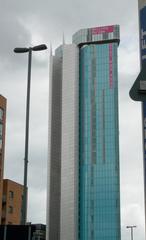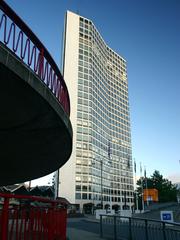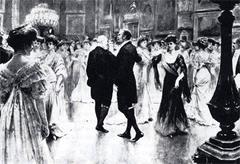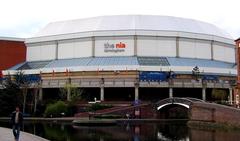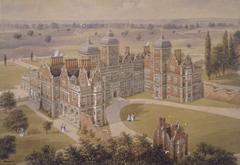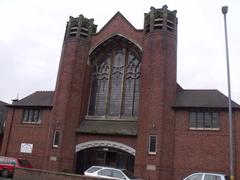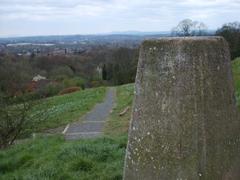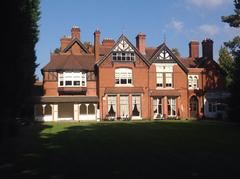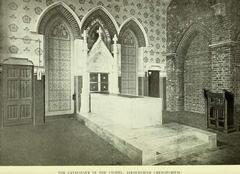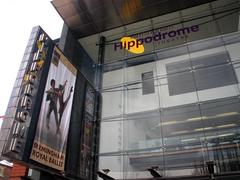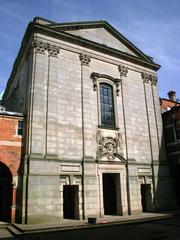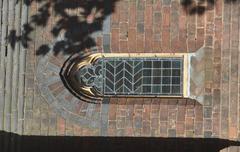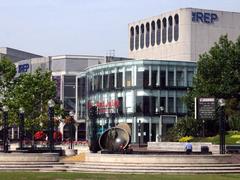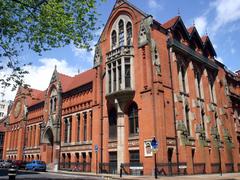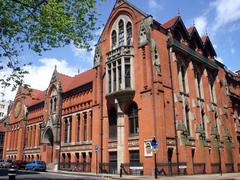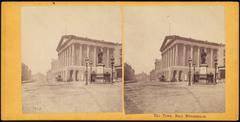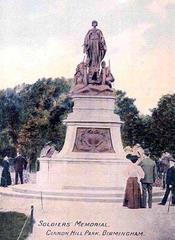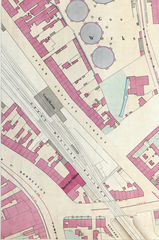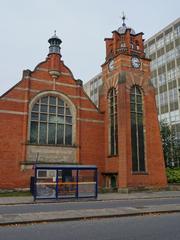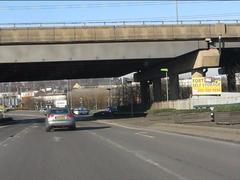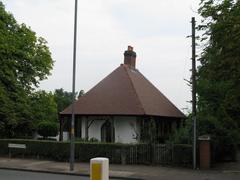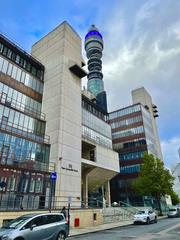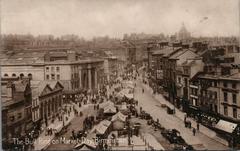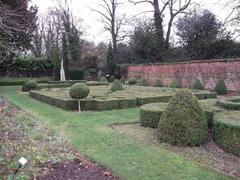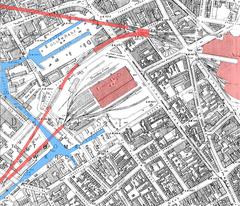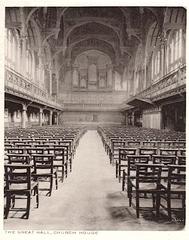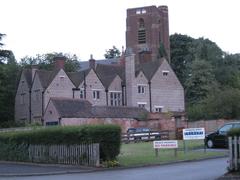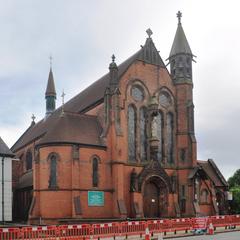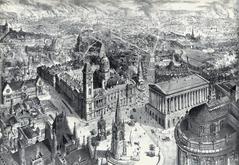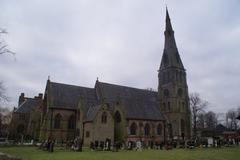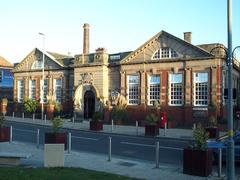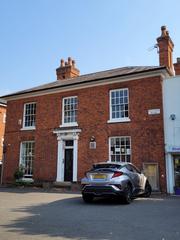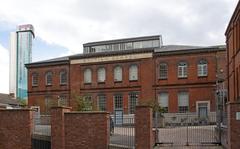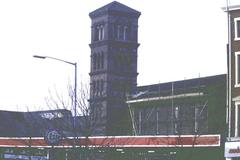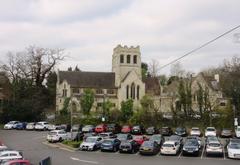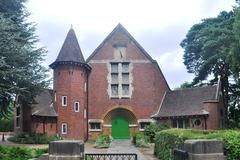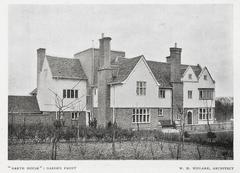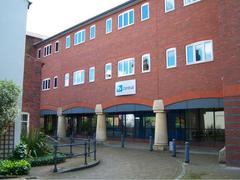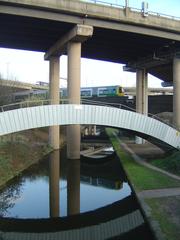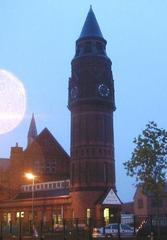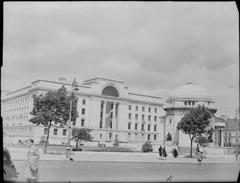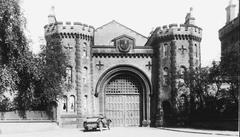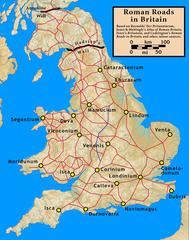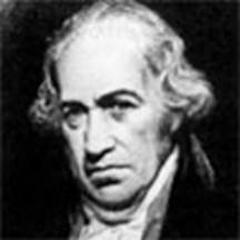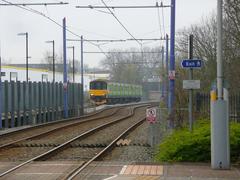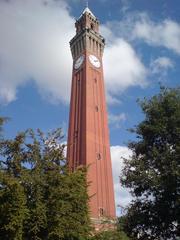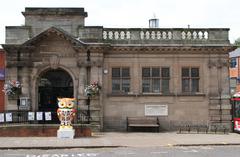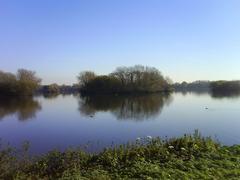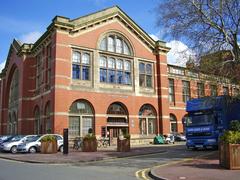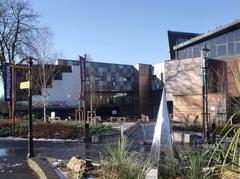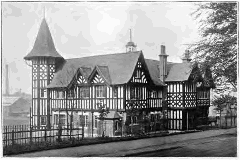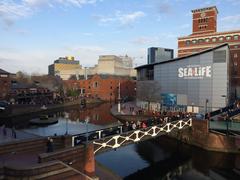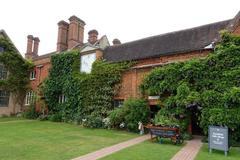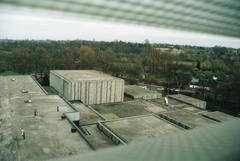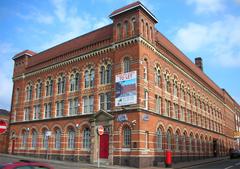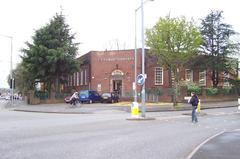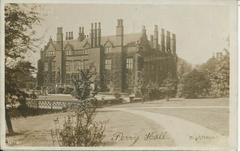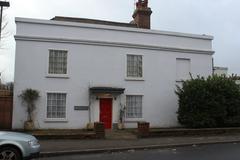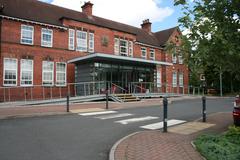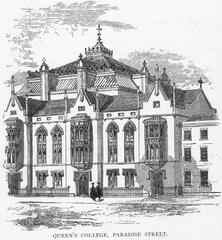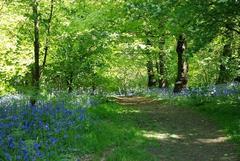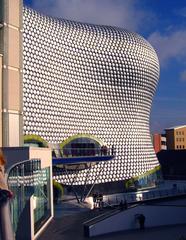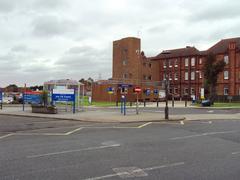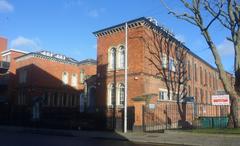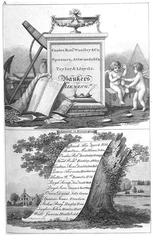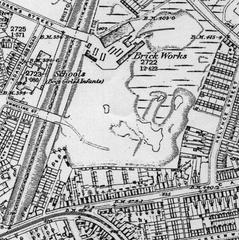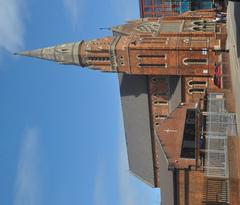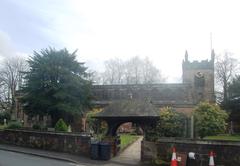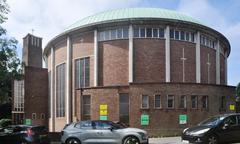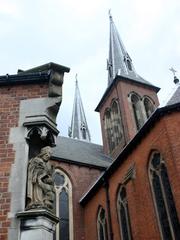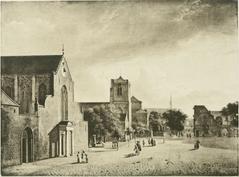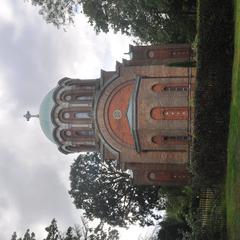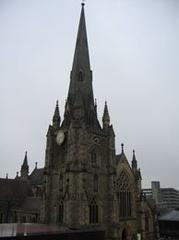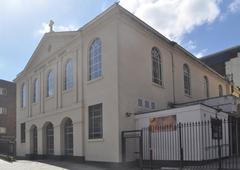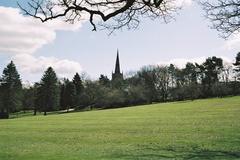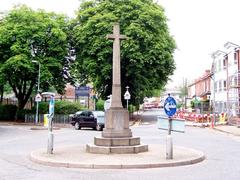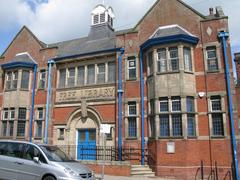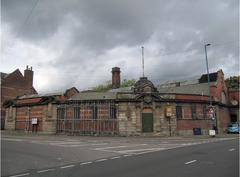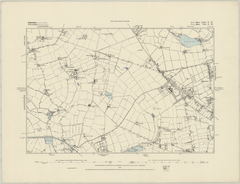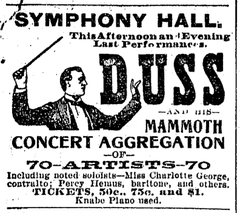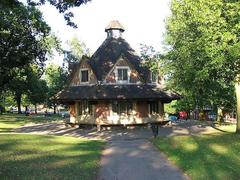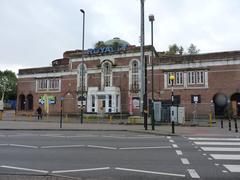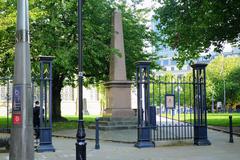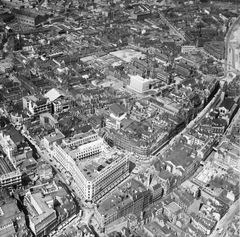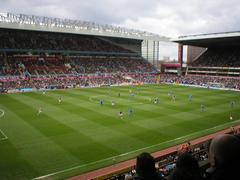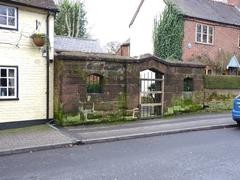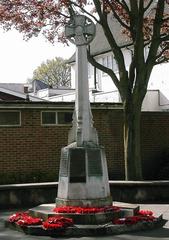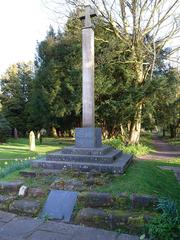
New Hall Valley Country Park: Visiting Hours, Tickets, Travel Guide, and Birmingham Historical Sites
Date: 04/07/2025
Introduction
New Hall Valley Country Park, nestled in Sutton Coldfield, Birmingham, offers a harmonious blend of natural beauty and deep-rooted history. This expansive green oasis, covering roughly 160 to 200 acres, invites visitors to explore ancient woodlands, historic wetlands, traditional meadows, and the meandering Plants Brook. The park is set against the historic backdrop of New Hall Manor, one of England’s oldest moated manor houses, dating back to the 13th century (Birmingham City Council). Established as a public park in 2005, New Hall Valley Country Park preserves its pastoral legacy while serving the modern needs of urban conservation and recreation. This guide provides comprehensive details on visiting hours, accessibility, key attractions, conservation efforts, and travel tips to help you make the most of your visit.
Table of Contents
- Introduction
- Historical Background and Landmarks
- Visitor Information
- Natural Landscapes and Ecological Significance
- Conservation Highlights and Initiatives
- Attractions and Activities
- Educational and Community Engagement
- Integration with Regional Heritage Initiatives
- Frequently Asked Questions (FAQ)
- Conclusion and Call to Action
- References
Historical Background and Landmarks
Origins and Early History
The land forming New Hall Valley Country Park boasts a rich historical tapestry dating back to medieval times. Its name is derived from the adjacent New Hall Manor, a 13th-century moated manor house built by the Gibbons family. The manor, now a Grade I listed building, is a testament to the area’s longstanding significance and agricultural heritage. For centuries, the park consisted of farmland, meadows, and wetlands shaped by the natural course of Plants Brook (Birmingham City Council).
Transition to Parkland
Urban growth in the late 20th and early 21st centuries led to the transformation of this historic farmland into a public park, officially opened in 2005. This development aimed to conserve the area’s natural and historical assets while providing a valuable green space for the community (Birmingham City Council).
Key Landmarks
- New Hall Manor: While now a luxury hotel, the 13th-century manor remains a defining feature on the park’s boundary, visible from many vantage points (New Hall Hotel & Spa).
- Plants Brook: This historic watercourse runs through the park, supporting wetlands and wildlife, and once powered local mills.
- Grazing Meadows & Hedgerows: Remnants of historic land management, with some hedgerows dating to the enclosure movement of the 18th–19th centuries.
- New Hall Mill: A Grade II listed 17th-century working water mill, open to the public on select days (New Hall Mill).
Visitor Information
Opening Hours and Admission
- Hours: Open daily, year-round, from dawn until dusk.
- Admission: Free entry; no tickets required for the park. Separate arrangements are needed for events at New Hall Manor or open days at New Hall Mill.
Accessibility
- Paths: Most main paths are surfaced, flat, and suitable for wheelchairs and pushchairs.
- Parking: Designated parking at Wylde Green Road and Coleshill Road, including disabled bays. Arrive early during peak times.
- Public Transport: Served by local bus routes and close to Sutton Coldfield railway station.
- Facilities: Benches and rest areas throughout. Accessible toilets are not on-site but available in Sutton Coldfield town centre (Visit Birmingham).
Travel Tips
- Wear comfortable, weather-appropriate clothing.
- Bring water, snacks, and a camera.
- For special events or mill open days, consult the New Hall Mill website or council pages.
Natural Landscapes and Ecological Significance
Woodland and Hedgerow Ecosystems
Home to native species such as oak, ash, and hazel, the park’s woodlands and ancient hedgerows support diverse wildlife, including birds, bats, and pollinators (Birmingham City Council).
Meadows and Grasslands
Managed to encourage wildflowers like knapweed, oxeye daisy, and yellow rattle, the meadows attract butterflies such as the meadow brown and common blue, as well as bees and other pollinators (Naturally Birmingham).
Wetlands and Plants Brook
The brook and associated wetlands are vital for amphibians, dragonflies, water voles, and birds like kingfishers. Restored and preserved, these habitats provide flood mitigation and enhance water quality (GOV.UK Nature Recovery Projects).
Conservation Highlights and Initiatives
Legal Protections and Management
- Site of Importance for Nature Conservation (SINC): The park is officially designated for its ecological value, ensuring protection from inappropriate development (Birmingham City Council).
- Habitat Restoration: Includes meadow cutting, woodland management, hedgerow laying, and wetland restoration.
- Nature Recovery Network: The park is a vital link in Birmingham’s network of wildlife corridors, contributing to city-wide biodiversity goals (Naturally Birmingham).
- Community Involvement: Volunteers and local groups participate in habitat management, wildlife surveys, and conservation education.
Ongoing Challenges
- Urban Development: Ongoing vigilance is needed to prevent habitat fragmentation.
- Invasive Species: Control efforts focus on species like Himalayan balsam.
- Climate Change: Management adapts to shifting weather patterns and ecological impacts.
Attractions and Activities
Walking and Cycling Trails
- Trail Network: Well-marked routes for walkers, runners, and cyclists link key features such as New Hall Mill, meadows, and woodlands (MyPacer).
- Accessibility: Most trails are level and wheelchair-friendly.
Heritage and Wildlife
- New Hall Mill: Open to the public on select days, offering milling demonstrations and heritage interpretation (New Hall Mill).
- Birdwatching: Spot kingfishers, herons, woodpeckers, and seasonal migrants.
- Family Facilities: Playgrounds, open grassy areas for games, and picnic sites.
- Educational Activities: Regular events, guided walks, and environmental education sessions.
Events
- Seasonal Events: Nature walks, wildlife workshops, and mill open days. Details on the Birmingham City Council parks website.
Educational and Community Engagement
- Outdoor Classroom: Used by schools and community groups for hands-on learning.
- Conservation Volunteers: Assist in habitat management, wildlife monitoring, and public events.
- Interpretive Signage: Explains the park’s historical and ecological features, with maps at key entrances.
Integration with Regional Heritage Initiatives
The park is part of a wider network of Birmingham’s green corridors, linking natural and historic sites such as Sutton Park, Pype Hayes Park, and Sutton Coldfield Town Centre. Visitors are encouraged to explore these nearby attractions for a richer experience (Birmingham City Council).
Frequently Asked Questions (FAQ)
Q: What are the visiting hours for New Hall Valley Country Park?
A: Open daily from dawn until dusk, year-round.
Q: Is there an entrance fee?
A: No, entry is free; no tickets required.
Q: Is New Hall Mill open every day?
A: No, it opens to the public on select days. Check the New Hall Mill website for dates.
Q: Is the park accessible for wheelchairs and pushchairs?
A: Yes, most main paths are surfaced and accessible.
Q: Are dogs allowed?
A: Yes, but they must be kept under control, especially near wildlife habitats.
Q: Where can I find accessible toilets?
A: Not on-site, but available in Sutton Coldfield town centre (Visit Birmingham).
Q: How do I get there by public transport?
A: Served by local buses; nearest rail station is Sutton Coldfield.
Conclusion and Call to Action
New Hall Valley Country Park stands as a model of urban green space, seamlessly blending historic preservation, ecological stewardship, and community engagement. Open year-round with free admission and accessible facilities, it welcomes families, casual walkers, wildlife enthusiasts, and history buffs alike. Explore the park’s walking trails, attend seasonal events, and deepen your experience with audio-guided tours via the Audiala app. For the latest updates, visit the official Birmingham City Council parks page, and follow us on social media for news and travel tips.
References
- Birmingham City Council – New Hall Valley Country Park
- New Hall Hotel & Spa
- Naturally Birmingham – Nature Recovery
- New Hall Mill
- Touristlink – New Hall Valley Country Park Overview
- Local Country Parks – New Hall Valley Country Park
- Birmingham Mail – Walk in the Park: New Hall Valley
- MyPacer – Visiting New Hall Valley Country Park
- Visit Birmingham – Accessibility Information
- GOV.UK – Nature Recovery Projects

